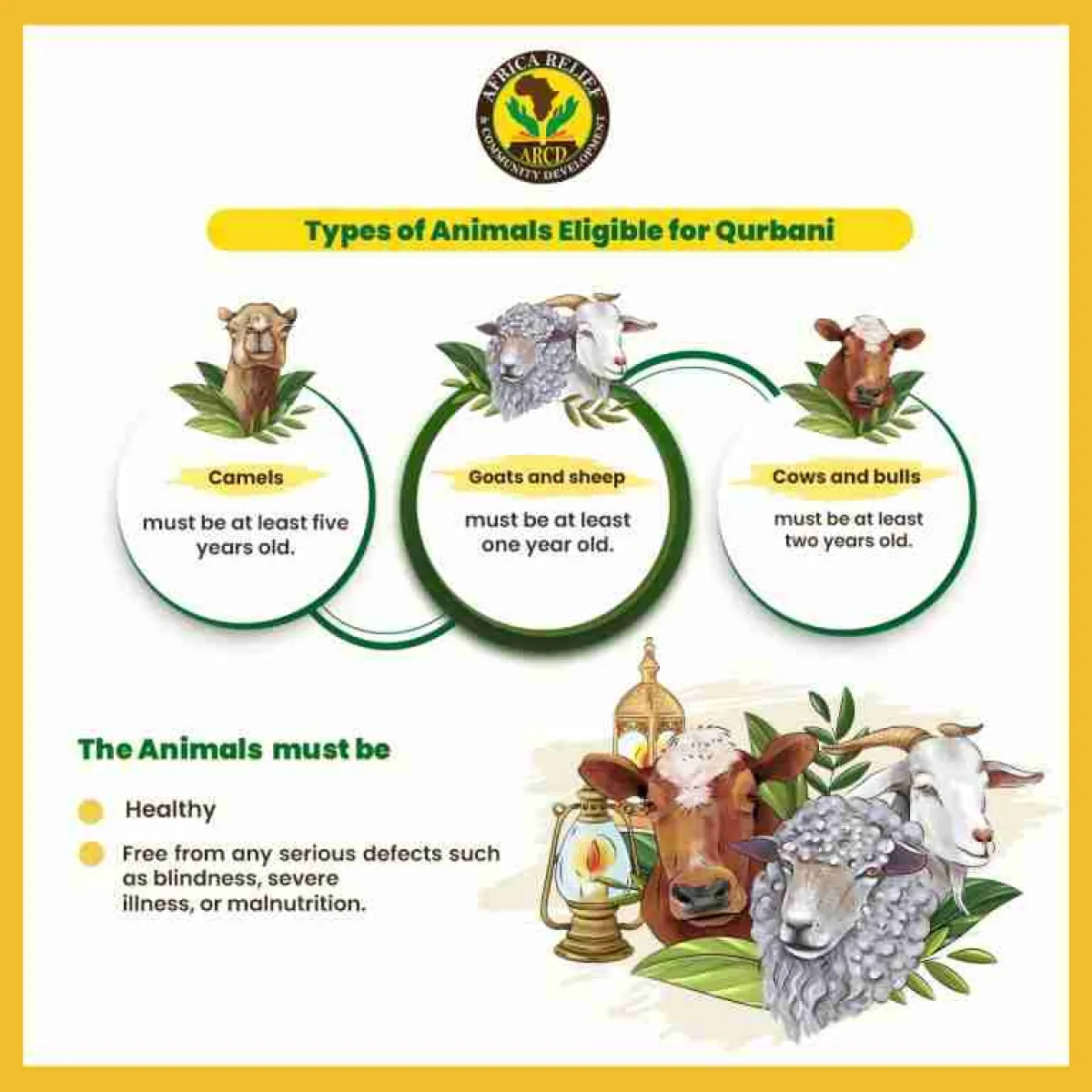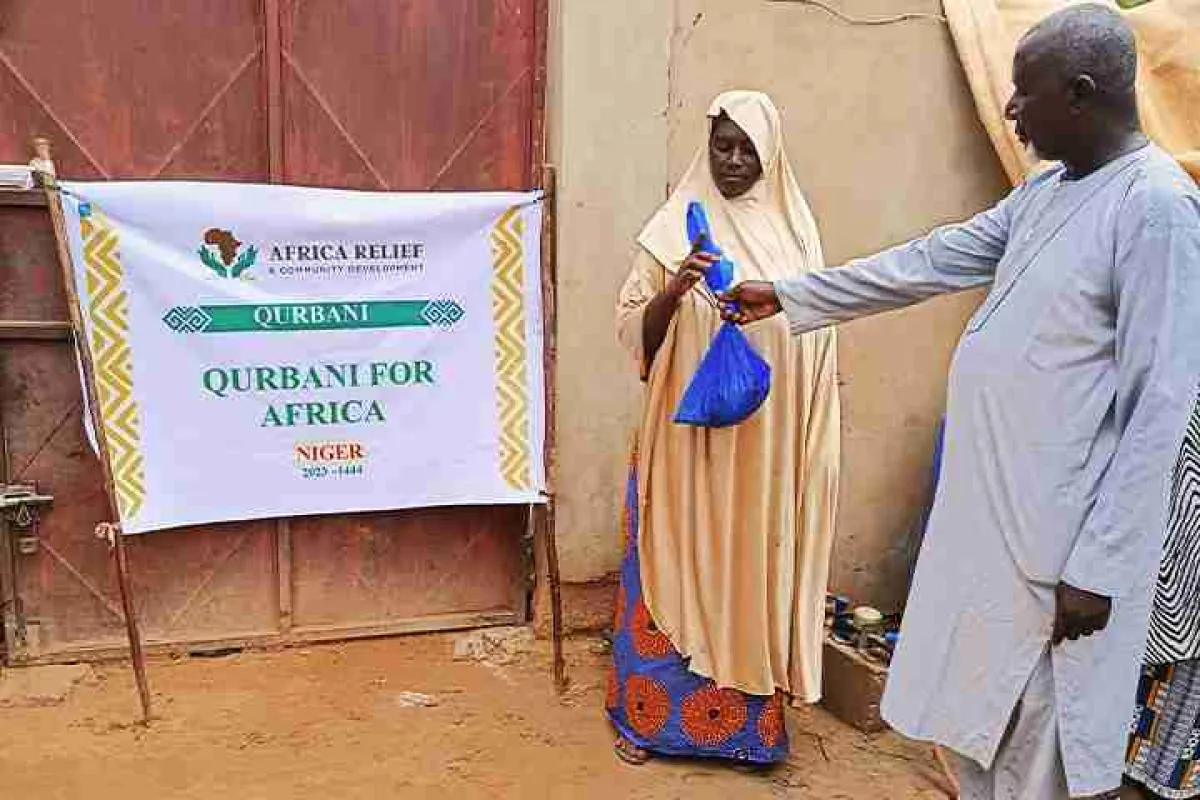Qurbani, also known as Udhiyah, is an Islamic tradition deeply rooted in the principles of charity and community support, observed during the festival of Eid al-Adha. It commemorates the obedience of Prophet Ibrahim to Allah’s command, reflecting a profound commitment to faith and altruism.
What is Qurbani
At its core, Qurbani is about giving. It provides an opportunity for Muslims to nourish and strengthen their communities by distributing meat to those in need, promoting the values of empathy and communal solidarity.
Qurbani/Udhiyah as Charity
One of the most important aspects of Qurbani is its role in charity. By distributing one-third of the meat to the needy, Qurbani acts as a powerful tool for social welfare, helping to alleviate hunger and providing joy during the festive season.
Why do Muslims Give Qurbani?
Qurbani meat donations are more than just a meal; they represent a rare source of high-quality protein, where families often survive on a single meal a day. The Qurbani meat distributed here not only provides nutritional relief but also brings communal joy during Eid celebrations.
Historical Background of Qurbani/Udhiyah
The tradition dates back to Prophet Ibrahim, who was tested by Allah’s command to dedicate his son. Before Ibrahim could fulfill this command, Allah provided a ram instead, signifying his son’s replacement.
This narrative, celebrated during Eid al-Adha, symbolizes the ultimate expression of faith and devotion, serving as a model of submission to the divine will.
Qurbani is not just a ritual but a means to foster community welfare. By sharing the meat with family, friends, and especially the needy, it acts as a vital source of support and joy during the festive season.
Qurbani/Udhiyah in Quran
Qurbani has strong foundations in the Quran, which includes specific verses that command the act of sacrifice as a means of closeness to Allah.
“So pray unto thy Lord, and sacrifice.” Surah Al-Kawthar (2:3)
This verse not only instructs the faithful in their duty to perform prayer and sacrifice but also emphasizes their importance as acts of worship.
“It is not their meat nor their blood that reaches Allah, but it is piety from you that reaches Him.” Surah Al-Hajj (22:37)
This verse elucidates the symbolic nature of Qurbani; it is not the physical offering that is important, but rather the piety and intention behind the act. These verses collectively highlight the importance of sacrifice as a spiritual act rather than a mere physical transaction.
Qurbani/Udhiyah in Hadith and Sunnah
The practice of Qurbani is further supported by numerous hadiths. For example:
The Prophet Muhammad said, “The act of sacrificing an animal is dear to Allah on the Day of Eid al-Adha.” Recorded in Sahih al-Bukhari
Another hadith from Sahih Muslim elaborates on the distribution of the meat, emphasizing that it should be shared with others, particularly the needy, which fosters a spirit of community and charity.
The Prophet Muhammad himself practiced Qurbani, demonstrating its importance through his actions. He is reported to have sacrificed two horned rams that were white with black markings, reciting the name of Allah and invoking His blessings upon his nation with each sacrifice.
Eid al-Adha Qurbani significance
Eid al-Adha, also known as the Festival of Sacrifice, is one of the two major Islamic festivals and is specifically linked to Qurbani. This festival commemorates Prophet Ibrahim’s willingness to sacrifice his son in obedience to Allah, which is seen as the ultimate expression of faith and submission.
The act of Qurbani during Eid al-Adha is not only a personal act of devotion but also a community-focused event that brings together families, friends, and communities. It provides an opportunity for those who are financially able to share their good fortune with those less fortunate, reinforcing the values of empathy, generosity, and communal support that are central to Islamic teachings.
Islamic Qurbani rules
Who Should Perform Qurbani?
Qurbani is required of every Muslim who has the financial capacity to do so. According to Islamic law, any adult Muslim who possesses wealth above the nisab threshold (the minimum amount of wealth one must have before they are liable to pay zakat) is obligated to perform Qurbani.
This includes the value of gold, silver, and cash that one may hold. The practice is intended to reflect Prophet Ibrahim’s willingness to sacrifice for Allah, making it a significant act of faith for those who are financially able.
Types of Animals Eligible for Qurbani

The animals eligible for Qurbani must be one of the following types: goats, sheep, cattle (including cows and bulls), and camels. Each animal type has specific age and health requirements to be considered suitable for Qurbani:
- Goats and sheep must be at least one year old.
- Cattle (including cows and bulls) must be at least two years old.
- Camels must be at least five years old.
- Additionally, the animals must be healthy and free from any serious defects such as blindness, severe illness, or malnutrition.
Distribution Rules: How Qurbani Meat is Divided?
The meat from Qurbani should be divided into three equal parts:
- One part for the family of the person who offers the Qurbani
- One part for relatives and friends.
- One part for the needy.
This division is designed to ensure that the benefits of the sacrifice reach as wide a segment of society as possible, emphasizing sharing and community support during Eid al-Adha.
How to perform Qurbani

In countries with diverse legal landscapes regarding animal welfare, like the USA, Qurbani is performed with a commitment to both religious observance and local regulations. The process respects humane standards and aligns with ethical treatment as prescribed in Islamic principles.
In the USA, the legal framework governing the slaughter of animals, particularly for Qurbani, involves several federal laws and regulations to ensure humane treatment. For those performing Qurbani in the USA, it’s crucial to ensure that the selected slaughterhouse complies with these federal regulations.
Charitable organizations play a crucial role here, helping to bridge the gap between Islamic practices and local regulations to facilitate compliant Qurbani processes.
Africa Relief offers a comprehensive solution that prioritizes both adherence to Islamic practices and compliance with U.S. regulations on animal welfare, ensures that all Qurbani donations are processed in a manner that is respectful to the animals and beneficial to the recipients.
Practical Steps for Performing Qurbani
- Selection of the Animal: Ensure the animal is healthy and meets age requirements as stipulated by Islamic law.
- Timing of the Sacrifice: Conduct Qurbani in the designated days following the Eid al-Adha prayers.
- Distribution of Meat: Share equally among family, friends, and importantly, the needy, emphasizing fresh distribution to maximize benefit.
- Environmental and Health Considerations: Handle remains in an environmentally friendly manner, respecting both public health regulations and ethical standards.
Qurbani is a powerful reminder of the values of compassion, faith, and community service in Islam. Through this practice, Muslims not only honor the sacrifice of Prophet Ibrahim but also contribute to societal well-being, making a meaningful impact in the lives of many.
FAQs about Qurbani
What is Qurbani?
Qurbani, also known as Udhiyah, is the Islamic tradition of sacrificing an animal during Eid al-Adha, commemorating the willingness of Prophet Ibrahim to sacrifice his son as an act of obedience to Allah. The meat from the sacrifice is distributed among family, friends, and the needy.
When should Qurbani be performed?
Qurbani should be performed after the Eid al-Adha prayers, starting from the 10th day of Dhul-Hijjah and can be done until the sunset of the 12th day of Dhul-Hijjah. It is important to ensure that the sacrifice is made within these days.
Who is required to perform Qurbani?
Qurbani is obligatory for every Muslim who has reached the age of maturity, possesses the nisab amount (the minimum amount of wealth one must have to be eligible to pay Zakat), and is not a traveler during the time of Eid.
What animals are eligible for Qurbani?
The animals eligible for Qurbani include goats, sheep, cattle, and camels. Specific requirements include:
- Goats and sheep must be at least one year old.
- Cattle must be at least two years old.
- Camels must be at least five years old.
- All animals must be in good health, free from any defects and malnourishments.
How is the meat distributed?
The meat from the Qurbani should ideally be divided into three equal parts: one part for the family of the person offering the Qurbani, one part for friends and relatives, and one part for the needy.
Can Qurbani be performed in a different country?
Yes, Qurbani can be performed in another country. Many people choose to perform Qurbani in countries where there is a greater need, such as in parts of Africa, through reputable charities such as Africa Relief that can arrange for performing Uhiyah and distribution of the meat to the needy.
Are there any specific prayers or rituals involved in Qurbani?
While there is no specific prayer for the act of sacrifice, it is recommended to say “Bismillah, Allahu Akbar” (In the name of Allah, Allah is the greatest) at the time of performing qurbani. It’s also advisable to ensure the animal is facing the Qibla (direction of the Kaaba in Mecca).
